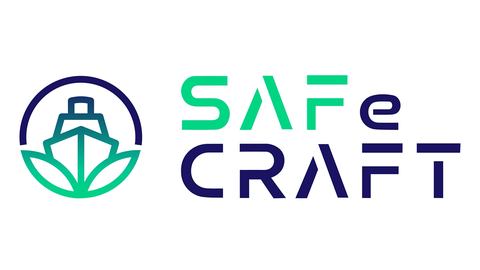Apr 08, 2024
LOHC technology in maritime hydrogen transport - the environmental perspective

SAFeCRAFT Logo
As a partner in the SAFeCRAFT project, the Institute of Water Chemistry is providing expertise in the environmental impact assessment of Liquid Organic Hydrogen Carriers (LOHC) for maritime hydrogen transport. The safety assessment of chemicals and the development of less harmful alternatives has been at the core of our activities for many years, particularly in the area of hydrogen storage using LOHC technology. We are very pleased to be able to put our expertise to use in a real-world application.
The SAFeCRAFT project supports the transition to the widespread use of sustainable alternative fuels in maritime transport to reduce greenhouse gas emissions in this sector while protecting the marine environment.
Contact person: Dr. Marta Markiewicz, Prof. Stefan Stolte, Dr. Jen-Hui Chang
Check our works on environmental hazard assessment of LOHC:
Y.-Q. Zhang, S. Stolte, G. Alptekin, A. Rother, M. Diedenhofen, J. Filser, M. Markiewicz, Mobility and adsorption of liquid organic hydrogen carriers (LOHCs) in soils – environmental hazard perspective, Green Chemistry, 2020, 22, p: 6519-6530
M. Markiewicz, Y.Q. Zhang, M. T. Empl, M. Lykaki, J. Thöming, P. Steinberg, S. Stolte, Hazard assessment of quinaldine-, alkylcarbazole-, benzene-and toluene-based liquid organic hydrogen carrier (LOHCs) systems, Energy & Environmental Science, 2019; 12(1), p:366-383
Y.Q. Zhang, M. Markiewicz, J. Filser, S. Stolte, Toxicity of a Quinaldine-Based Liquid Organic Hydrogen Carrier (LOHC) System toward Soil Organisms Arthrobacter globiformis and Folsomia candida, Environmental Science & Technology, 2017, 52(1), P: 258-265
M. Markiewicz, Y.Q. Zhang, A. Bösmann, N. Brückner, J. Thöming, P. Wasserscheid, S. Stolte Environmental and Health Impact Assessment of Liquid Organic Hydrogen Carrier (LOHC) systems - Challenges and Preliminary Results, Energy and Environmental Science, 2015, 8 (3), p:1035-1045
